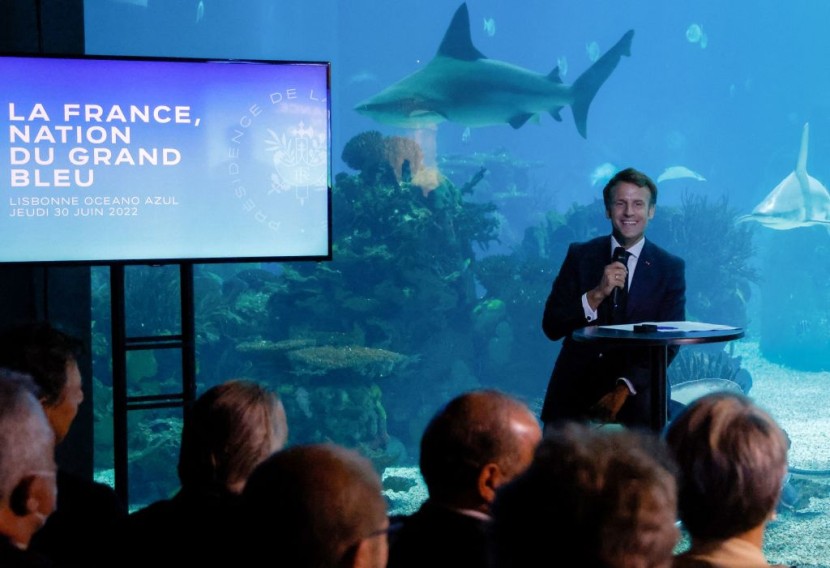
French President Emmanuel Macron urged nations to establish a legal framework to put an end to deep-sea mining, which threatens ecosystems, and to invest more in developing a better understanding and action plan to protect the oceans.
Deep-sea mining is becoming more widespread internationally, although there is pressure from some environmental organizations and governments to either prohibit it or make sure it only proceeds with the necessary restrictions in place.
Using massive equipment on the ocean bed, deep-sea mining would suck out nodules of small rocks that contain cobalt, manganese, and other precious minerals that are primarily used in batteries, as per a report from The Guardian.
Macron Urges World Leaders To Protect the Seas
In an event on the sidelines of the UN conference in Lisbon, Macron made the call on world leaders " to create the legal framework to stop high-sea mining and to not allow new activities putting in danger these ecosystems."
"But at the same time, we need to promote our scientists and explorers to better know the high seas. We need to better understand in order to protect," France's head of state added.
Despite President Macron's objections to deep-sea mining, France has a contract with the National Institute for Ocean Science for the exploration of a 75,000 square kilometer (29,000 square miles) area in the Clarion-Clipperton Zone, a region of the north Pacific seabed abundant in polymetallic nodules.
The International Seabed Authority (ISA), a UN agency, is developing rules for seabed mining on high seas, which are areas beyond the jurisdiction of any one nation. Seabed mining is prohibited until worldwide regulations are defined.
Reuters reported that several countries have called for an international moratorium on all deep-sea mining endeavors due to environmental concerns and insufficient scientific data. Those countries include the Pacific islands of Palau and Fiji, as well as Chile in South America.
On the other hand, some countries support deep-sea mining. China, for example, leads deep-sea mining exploration. Other small countries are also involved like Nauru, which requested the ISA to speed up the adoption of regulations on seabed mining.
Last month, the G7 countries declared they would only approve of such mining projects if the environment would not be substantially impacted. According to Peter Thomson, the U.N.'s Special Envoy for the Ocean, legislation to allay these worries should come eventually.
Growing Calls on Banning Deep-Sea Mining
Scientists continue to warn that the industry's expansion will cause an irreversible loss of biodiversity and might endanger vital carbon reserves, prospective medications, and fisheries, according to a Deep Sea Conservaton Coalition media release.
As interest in deep-sea mining increases, the backlash on the environment-damaging industry also intensifies. There are also concerns about the ISA that it is not transparent in imposing regulations.
Civil society has denounced the ISA's lack of transparency as additional restrictions on participation at planned deep-sea mining meetings in July and August have been announced. The groups claim that the measures shut the door to negotiations for many parties at what would be a pivotal point.
In a joint letter addressed to the ISA Secretary-General, 31 civil society organizations urged concerned authorities to either remove the limits or postpone the meetings. They also encourage more nations, civil society organizations, media outlets, and other parties to partake.
Related Article : Monkeypox Cases Raise Fears as Outbreak Spreads | Doctors Reveal Best Ways To Avoid Infection, Protect Yourself
© 2025 HNGN, All rights reserved. Do not reproduce without permission.








